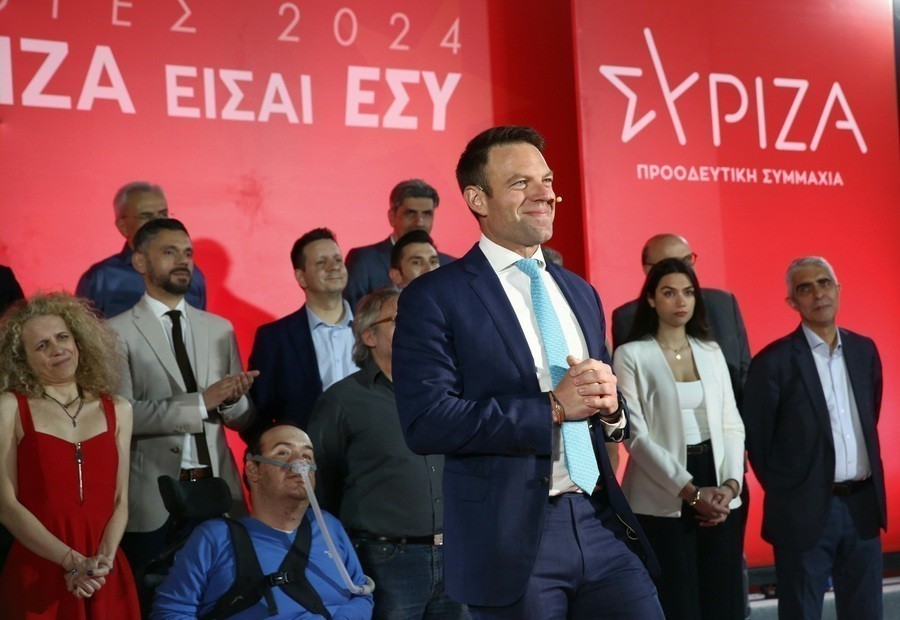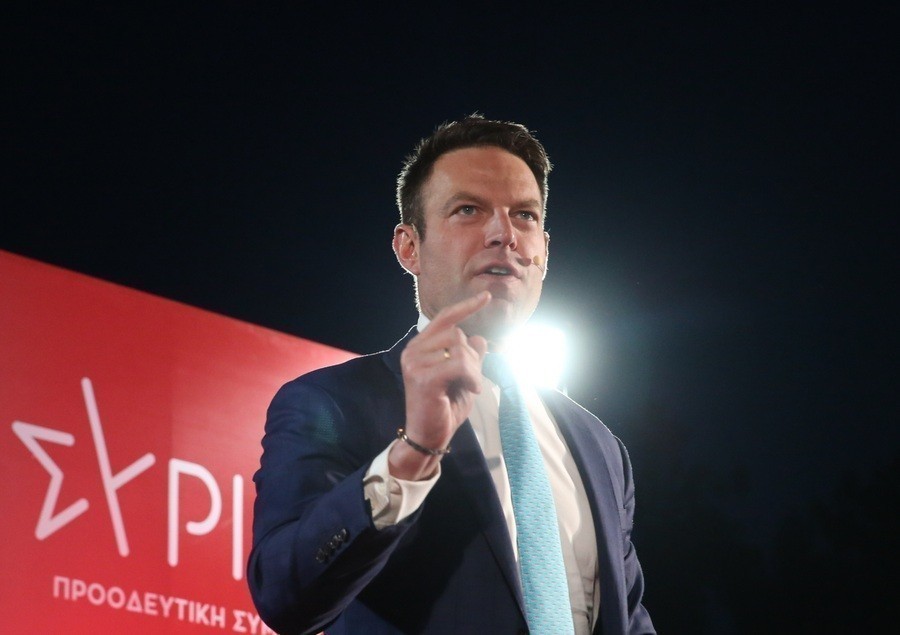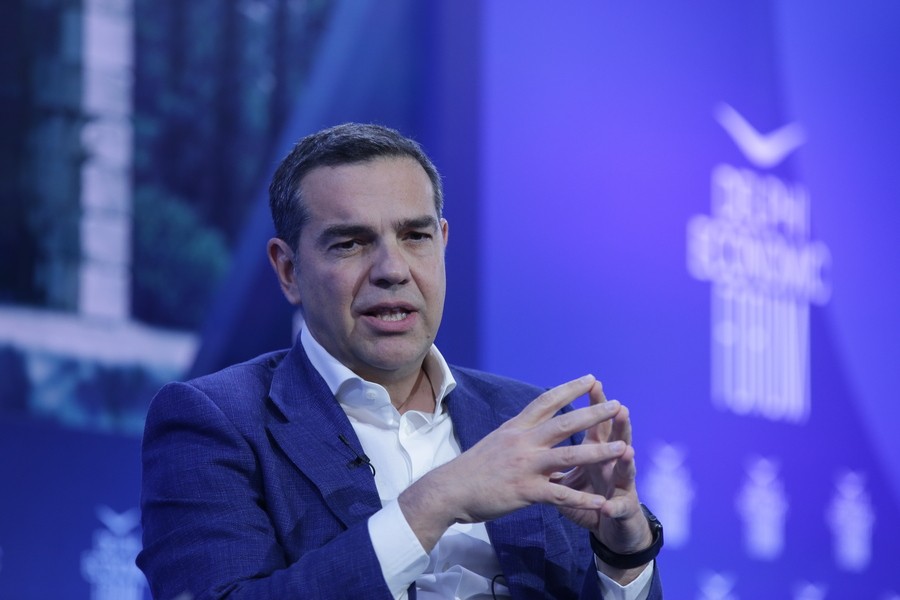
The European Left has a clear strategy, the Europe of the many, Alexis Tsipras said
Greek Prime Minister Alexis Tsipras, inaugurating the summit organised by SYRIZA and the European Parliament’s Confederal Group of the European United Left/Nordic Green Left in Athens on Friday, unequivocally condemned “in the most absolute sense, the abhorrent attack carried out by elements of far-right terrorism in New Zealand.’ The Greek prime minister underlined that distance was no protection and that “no one is safe from raging murderers of racial, ethnic, religious purity, either in Norway’s Outogy nor in New Zealand’s Christchurch.”
“Let those who promote Islamophobia, hatred and intolerance for those that are different consider the responsibility they bear, especially when they do this from the seats of our national parliaments or from those of the European Parliament,” he added.
“We want growth that is fuelled by labour, not by the crushing of labour,” Tsipras said and made a reference to Portugal, “where the progressive forces, the Socialists, the Communists, the Left annd the Green party – all came together to agree on a plan to escape the recession and high unemployment.”
A similar dialogue could now also be seen between the progressive forces in Spain, he added, on issues concerning the regeneration of the labour market and labour rights and an increase in public spending.
“What we have achieved in these years may have been significant but it was not enough,” said Tsipras.
“On a more general level in Europe, the same inefficient dogmas that are hostile to the people still dominate the European institutions, the same insistence on neoliberal economic orthodoxy that constantly strengthens capital at the expense of labour,” said Tsipras, while he highlighted the lack of accountability, emphasis on technocratic governance and disdain for the will of the people and smaller nations.
“In this context’, added Tsipras, “it is no surprise that nationalism re-emerged across Europe in recent years.”
Concerning Brexit, the prime minister referred to the “lamentable emergence of extremist, xenophobic, racist powers in European countries, even in some countries that were famous for their democratic traditions and the stability of their political institutions.”
“During the crisis, in several countries, the far-right managed to voice the anger and disappointment of people and the popular masses against the blatant failures of the European ‘project’ and the bad management of the great economic crisis,” said Tsipras, stressing that “the extreme right expresses anger and disappointment, but does not oppose, not even in the slightest, the interests of the powerful elite.”
“It presents itself as an antisystemic power, but does not oppose the financial establishment. Nor does it try to attenuate the sovereignty of capital over labour forces, quite the opposite in fact,” Tsipras continued.
Tsipras underlined that “the extreme right assumes government responsibilities and attempts the most extreme neo-liberal reform,” while he cited Viktor Orban as an example of “so-called reforms and mass firings of workers, ideas that are promoted by like-minded politicians in Austria and elsewhere.”
Let’s not forget that both the far-right and neoliberalism share the same philosophy, the same disdain for the weak,” he added.
The forces of the European Left have a duty to fight against austerity and neoliberalism but also against the far right and nationalist hatred, Tsipras said, stressing that “we must not allow the new far right of Europe to benefit from the popular discontent nor yet allow the forces of austerity to emerge unscathed.”
It was not enough to have a anti-neoliberal policy platform, he said. It was also necessary to offer European voters a modern, accessible and convincing alternative: “In order to eradicate the hatred and fear cultivated by the far right we must become capable or generating answers and political examples for improving people’s lives.
“We must show we are ready and capable of working with the citizens to change things, today,” Tsipras said. “In order to stop the neoliberal dominance and for the ‘Europe of the many’ to become action…we must not only speak about the many but ally ourselves with them,” he added.
Referring to an “alliance with the socially excluded and hard-pressed social classes and groups that were called upon to pay the cost of an international crisis that they did not create,” the prime minister also stressed the need for a broad social and political progressive alliance on a European level to stop the far right and neoliberalism.
“We have a historic duty to fight alongside all the social and political forces, despite the real differences, to change the current, grim reality,” he said. “We have to show in practice that social inequality is not a natural phenomenon, as the neoliberals claim, and that refugees and migrants are not responsible for social ills and Europe’s current existential crisis, as the racists and far-right nationalists assert,” Tsipras added.
Source: ANA-MPA

